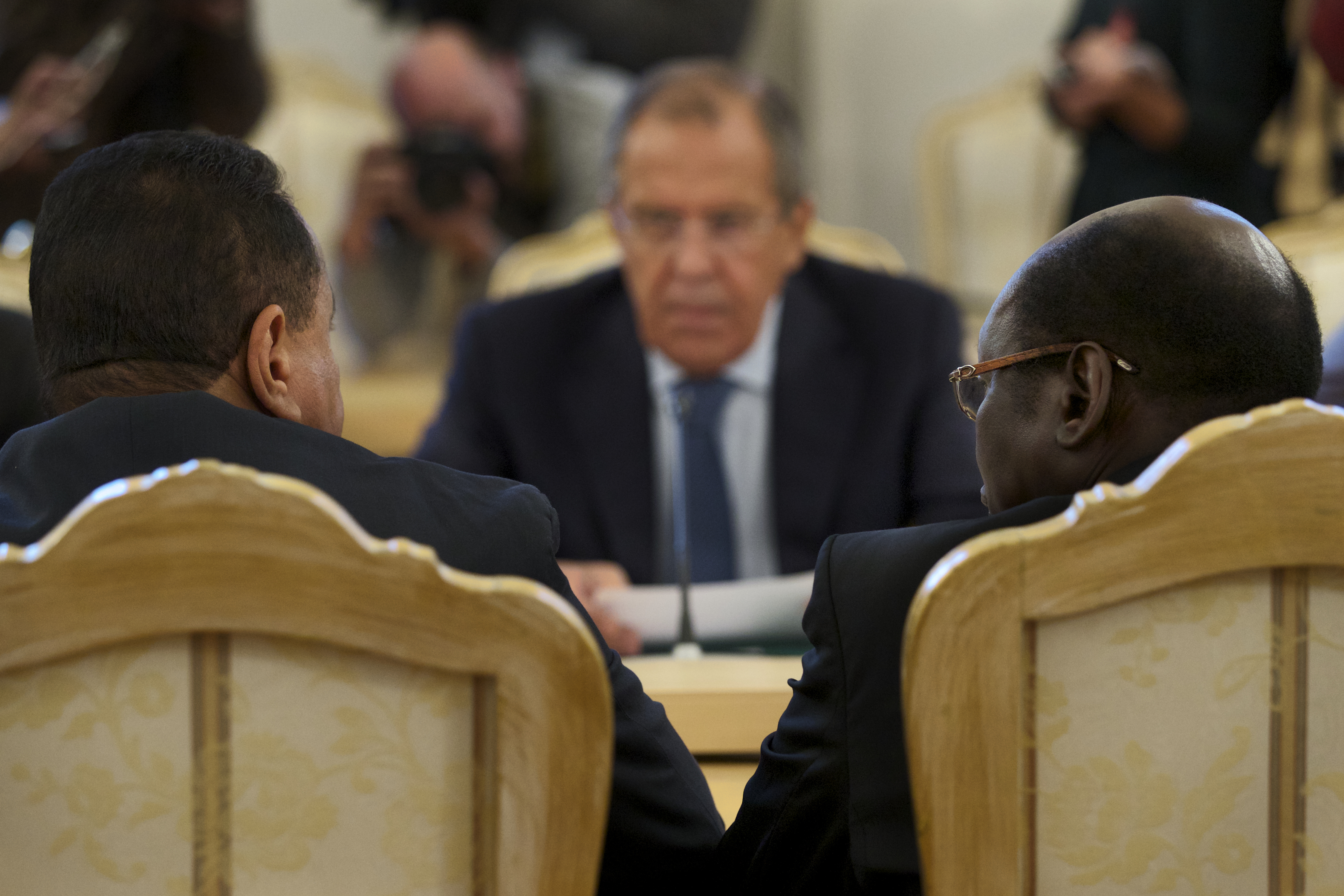Russian troops already in Syria: Israeli defense chief
JERUSALEM: Russian troops have arrived in Syria to aid Bashar Assad's beleaguered government in the battle against Islamic State militants, Israel's defense minister said Thursday, a development that could help the Syrian president reverse his recent battlefield losses in the country's bitter civil war, now in its fifth year.
Moshe Yaalon said the Russians in recent days dispatched military advisers as well as an active force, with the main goal of setting up an air base. The base, near the Syrian city of Latakia, could deploy fighter jets and helicopters in strikes against IS militants.
"As far as we understand, at this stage we are talking about a limited force that includes advisers, a security team and preparations for operating planes and combat helicopters," Yaalon said in a briefing with Israeli reporters.
The claim was the latest indication of a Russian military buildup in Syria that has raised US and NATO concerns.
Earlier Thursday, Russia's Foreign Minister Sergey Lavrov said Russian aircraft flying into Syria have been delivering weapons along with humanitarian supplies. He added that Russian servicemen are in the country to train the Syrians how to use the military hardware, but would not provide numbers or any other specifics.
Moscow has backed Assad throughout the nation's civil war, which has killed more than 250,000 people. Lavrov, just like Russian President Vladimir Putin, sought to cast arms supplies to Assad's government as part of international efforts to combat the Islamic State group and other militant organizations in Syria.
Putin has not ruled out a larger role. When asked if Russia could deploy its troops to Syria to help fight IS, he said last week that Russia was "looking at various options." The ongoing Russian buildup could signal he already has decided to back up Assad.
The United States and its allies see Assad as the cause of the Syrian crisis, and Washington has warned Moscow against beefing up its presence.
But those warnings have been softer in tone, compared to the original American position that demanded Assad's ouster. After years of heavy fighting, it seems that Assad can continue clinging to power, propped up by Russian and Iranian aid, as well as the West's focus on the struggle against the extremist IS group, which now controls a third of Syria.
Yaalon described the Russian move as "significant," and said if the Russians plan on carrying out airstrikes against IS militants, they would have to coordinate it with a US-led campaign.
The Israeli minister added that Russia's first goal is likely to protect its interests in Syria, namely the navy base of Tartus on the Mediterranean Sea. Yaalon did not elaborate on how Israel knew of the Russian deployment in Syria.
Israel has been careful to stay out of the fighting in Syria and has not made its preferences clear. On one hand, it has no interest in seeing its long-time nemesis Assad prevail, particularly given his close ties to archenemies Iran and Hezbollah.
On the other hand, it fears that any Islamic militants or rebels that depose him will ultimately be far more hostile to Israel.
Asked about Russian planes flying to the airfield near Latakia, Lavrov said without elaborating that they were carrying "military items in accordance with existing contracts and humanitarian aid."
Pressed to comment on Russia's plans, Lavrov said "Russia isn't taking any additional steps," aside from helping train the Syrian military for now, but like Putin, he held the door open for broader action.
"If it's necessary, we will act in full conformity with the Russian legislation, international law and our obligations, exclusively on the request and consent of the government of Syria and other countries of the region, if there is a talk about helping them fight terrorism," he said.
Putin's spokesman Dmitry Peskov stressed that Russia sees Syrian government forces as the only ones capable of fighting IS militants and said it is Russia's mission to support them.
Putin is expected to focus on the situation in Syria when he addresses the UN General Assembly at the end of the month. By playing with the idea of joining the US-led coalition fighting IS, Putin may hope to improve ties with the West, which have been damaged by the Ukrainian crisis.
So far, Russia's maneuvers do not appear to be coordinated with other countries operating in the area.
Yaalon's information closely resembles that of a US defense official who said the US has seen the Russians fly a variety of military assets into the airfield south of Latakia, including troops capable of protecting Russian forces there and modular housing units. The official, who spoke on condition of anonymity because he wasn't authorized to publicly discuss the issue, said it indicated that the Russians were preparing for some sort of air operations.
Assad's forces have recently suffered a series of setbacks on the ground. He has acknowledged those losses, saying the army has had to relinquish some areas in the north to be able to better defend core areas seen as more critical to the government.
So far, two out of Syria's 14 provinces are totally out of government control — Idlib, which fell Wednesday to al-Qaida militants and other Islamic fighters, and Raqqa, which was seized in 2014 by the Islamic State. The IS has declared a caliphate on the territory it controls in Syria and Iraq.






